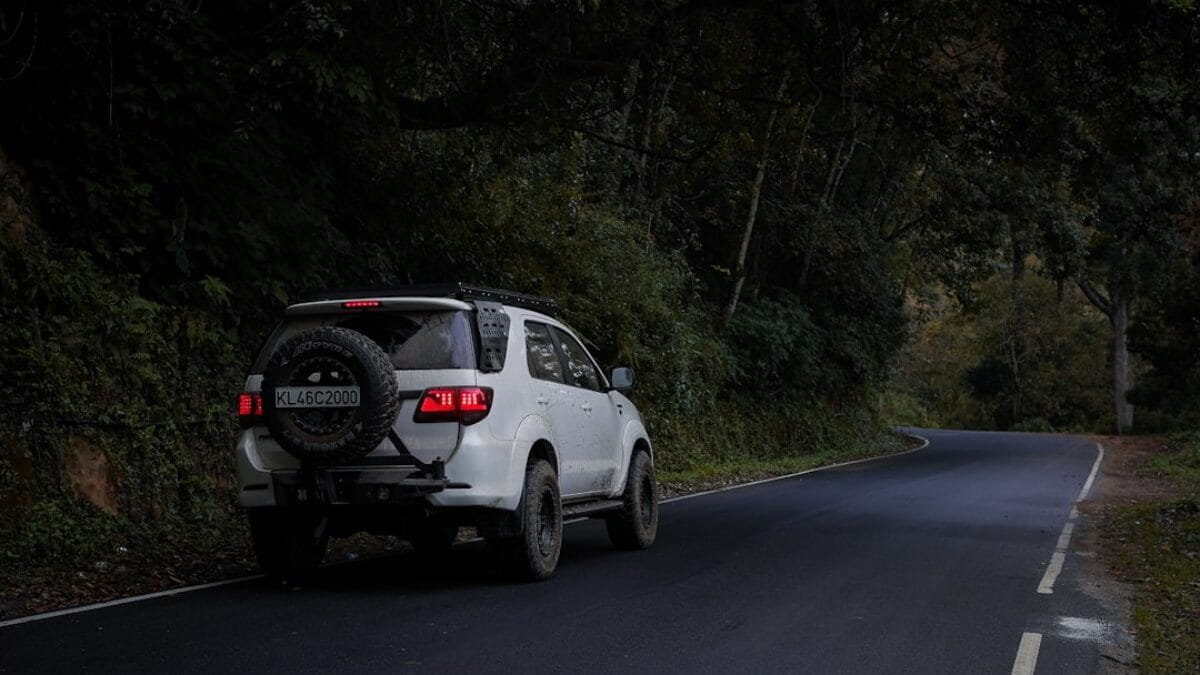The Indian multi-purpose vehicle (MPV) market is buzzing as two formidable contenders—the Maruti Suzuki Ertiga and the Kia Carens 2025—go head-to-head. One represents tried-and-tested value engineering from Maruti, while the other brings Kia’s global design flair and feature richness. Whether you’re a seven-member family, an airport-fleet operator, or an Uber XL driver looking for the most profitable rupee-per-kilometre ratio, this comparison will dissect every rupee of price, every kilometre per litre of mileage, and every touchscreen pixel of features to determine which MPV truly deserves your driveway.
Understanding the 2025 MPV Landscape
Before diving into the nitty-gritty, it helps to understand why these two models dominate the conversation. The compact-MPV segment in India (cars under 4.4 m in length that still seat seven) is growing at roughly 14 % CAGR. Urban buyers want three rows without the bulk of an SUV, while fleet buyers want low running costs and bullet-proof reliability. Both the Ertiga and Carens sit perfectly in this niche, yet they interpret the brief very differently.
Target Buyers in 2025
- Families upgrading from hatchbacks or compact sedans who need a third row only occasionally.
- Commercial fleet operators (Ola, Uber XL, airport taxis) who log 200–300 km daily.
- Independent tour operators in tourist-heavy states like Kerala, Himachal and Rajasthan.
Key Components of the Ertiga vs Carens Debate
Pricing Strategy: Ex-Showroom to On-Road Deep Dive
Price remains the first filter for 80 % of Indian buyers. Below is a trim-wise price matrix (ex-showroom, Delhi) followed by indicative on-road prices including registration, insurance and TCS where applicable.
| Variant | Maruti Ertiga 2025 | Kia Carens 2025 |
|---|---|---|
| Base Petrol MT | ₹8.64 L (LXi) | ₹10.45 L (Premium) |
| Mid Petrol MT | ₹10.03 L (VXi) | ₹12.45 L (Prestige) |
| Top Petrol AT | ₹13.14 L (ZXi+ AT) | ₹17.15 L (GTX+ iMT) |
| Base Diesel MT | ₹11.54 L (LDi) | ₹11.95 L (Premium) |
| Top Diesel AT | ₹14.64 L (ZDi+ AT) | ₹18.45 L (GTX+ AT) |
| CNG Variant | ₹10.44 L (VXi CNG) | Not Available |
On-road prices (Delhi inclusive) add roughly 12–14 % for the Ertiga’s lower variants and 15–18 % for Carens because of higher insurance cost on pricier trims. If you’re financing, Kia’s higher sticker price pushes EMIs up by about ₹3,500–4,000 per month for a 5-year 90 % loan.
Mileage & Real-World Fuel Economy
Lab-tested ARAI numbers rarely survive Indian traffic. We aggregated user-reported figures from TripTap, Fuelio, and Team-BHP logs for 5,000 km-plus samples.
Petrol ARAI vs Real-World (km/l)
- Ertiga 1.5L MT: 20.51 ARAI → 14.5–15.5 city / 16–17 highway
- Ertiga 1.5L AT: 20.30 ARAI → 13–14 city / 15–16 highway
- Carens 1.5L NA MT: 16.2 ARAI → 11–12 city / 13–14 highway
- Carens 1.5L T-GDi DCT: 16.5 ARAI → 10–11 city / 12–13 highway
Diesel ARAI vs Real-World (km/l)
- Ertiga 1.5L Diesel MT: 24.52 ARAI → 18–19 mixed
- Carens 1.5L Diesel MT: 21.3 ARAI → 16–17 mixed
- Carens 1.5L Diesel AT: 18.4 ARAI → 15–16 mixed
CNG Savings
Only the Ertiga offers a factory-fitted CNG kit. Real-world CNG economy hovers around 24–26 km/kg, translating to running costs of ₹2.3–2.5 per kilometre—half of the Carens petrol turbo.
Features & Tech Warfare
Maruti bets on essentials; Kia throws in the kitchen sink. Here is a feature-matrix to visualise gaps.
| Feature Category | Ertiga ZXi+ | Carens GTX+ |
|---|---|---|
| Touchscreen | 7″ SmartPlay Pro | 10.25″ HD w/ connected car, OTA updates |
| Digital Cluster | 4.2″ TFT in analogue | 12.3″ full digital (colour themes) |
| Auto Headlamps | Yes | LED projector w/ auto levelling |
| Sunroof | No | Single-pane electric |
| Second-row experience | Captain seats (opt) | Reclining & sliding captain seats w/ table tray |
| Airbags | 4 (dual front, side) | 6 (incl curtain) |
| ESP, HAC, VSM | No | Standard from mid trim |
| Bose Premium Audio | No | 8-speaker Bose |
| Ambient Lighting | No | 64-colour LED |
| Air Purifier | No | Builtin with AQI display |
In day-to-day use, Kia’s 10.25-inch touchscreen and Bose sound system transform long highway drives into a lounge-like experience. Families with kids particularly value the rear sun-shade curtains, USB-C fast charging ports in all three rows, and the conversation mirror. Ertiga counters with better physical switchgear feel and consistently faster screen response (Maruti’s software is lighter).
Space & Seating Flexibility
Numbers only tell half the story; human comfort completes it.
- First-row headroom: Identical at ~1,010 mm
- Second-row knee room: Carens wins with 720 mm (sliding set to mid) vs Ertiga’s 680 mm
- Third-row knee room: Ertiga 560 mm vs Carens 540 mm; however Carens’ higher hip point gives better thigh support
- Boot with all seats up: Ertiga 209 L vs Carens 216 L
- Boot 50:50 third row folded: Ertiga 550 L vs Carens 645 L
In practical terms, three adults can sit in the Carens’ second row without shoulder contact, while the Ertiga feels cosier. Yet the Ertiga’s lighter doors and low floor benefit elderly passengers.
Powertrain Performance & Driveability
Maruti’s 1.5-litre K15C DualJet (103 PS, 137 Nm) is tuned for fuel economy. It feels peppy below 3,000 rpm but runs out of breath on fast overtakes. The 6-speed torque converter is smooth but quick to upshift for economy, sometimes requiring manual override on ghat roads.
Kia offers three engine options:
- 1.5 NA Petrol (115 PS, 144 Nm): Adequate for city, strained on hills with 7 aboard.
- 1.4 T-GDi (140 PS, 242 Nm): Punchy mid-range, 0-100 km/h in 10.2 s—quick for an MPV.
- 1.5 Diesel (115 PS, 250 Nm): Linear torque, minimal turbo lag, happiest between 1,500–3,500 rpm.
On a Mumbai–Goa run with four adults and luggage, the Carens 1.4 T-GDi DCT clocked 14.7 km/l at 100 km/h cruise while effortlessly dispatching slow-moving trucks. The Ertiga petrol AT managed 15.8 km/l but needed a downshift and patience for each overtake.
Safety & NCAP Ratings
Global NCAP crash-tested the Ertiga (Africa-spec) and awarded 3 stars for adults, 3 for child occupants. Kia Carens has not yet been tested, but being based on the same platform as the Seltos (3-star G-NCAP), expectations hover around 3–4 stars. Both cars get ESC from the mid variants, but Kia additionally offers tyre-pressure monitoring, multi-collision braking and hill-descent control—useful on Himalayan descents with a full load.
Benefits and Importance for Different Buyers
For Family Users
If you drive under 1,500 km per month, the Ertiga petrol CNG’s ultra-low running cost (₹2–2.5/km) offsets the slight lack of features. Parents appreciate Maruti’s wide service network, which means even tier-3 towns have a workshop within 50 km.
For Fleet Operators
- Depreciation: Ertiga loses ~34 % value after 3 years vs Carens at ~42 %.
- Insurance: Lower IDV keeps annual premiums ~₹6,000 cheaper.
- Spares: A headlamp assembly costs ₹3,800 for Ertiga vs ₹9,500 for Carens LED unit.
In Delhi-NCR Uber XL circles, operators report ₹1.2–1.4 lakh higher earnings over 2.5 years with the Ertiga CNG purely due to fuel and maintenance savings.
For Highway Tourist Taxi
Tourists want plush seats, big glass area and rear air-con ceiling vents. Carens’ Bose audio and reclining middle-row seats increase per-day

